How the coronavirus changed aid work
The health crisis and measures to curb the spread of the coronavirus have also changed the work of Finn Church Aid (FCA). Our actions include providing emergency aid, hygiene supplies and distance learning as well as awareness of the disease. The situation has also sparked new forms of work.
During the Covid-19 pandemic, everyone faces an unforeseen situation. How do children and youth continue learning during school closures, and how do parents earn a living to support their families when they are supposed to stay at home?
People all over the world have had to be resourceful. Whatsapp and Zoom have gained countless new users, and in some cases, people have found a new source of income by producing face masks.
Below, we compiled examples of our work in some of our programme countries during the pandemic.
Cambodia
During school closures, career counselling and guidance has gone online. Career counsellors trained by FCA teach on video, replacing contact teaching with clips about 10 to 15 minutes long. Teachers record the videos with their smartphones and share them with their pupils on Whatsapp, along with exercise material that learners can complete at home.
Using videos as a part of teaching is a new practice for schools in the provinces of Battambang and Banteay Meanchey, and the initiative allows career counselling to remain a part of the pupils’ weekly routine.
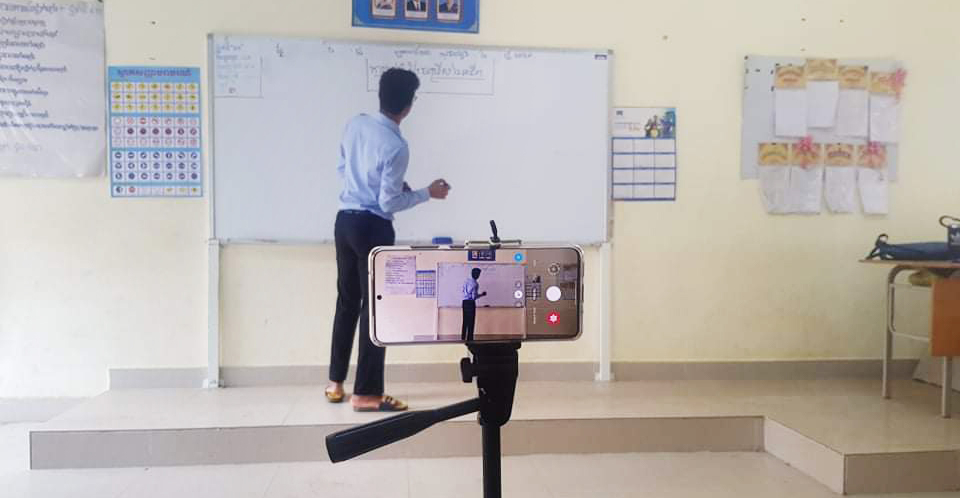
FCA trained career counsellor Buntith Mak in Cambodia.
Uganda
In Uganda, Finn Church Aid works at the two largest refugee settlements in the country. Bidibidi in northern Uganda and Kyaka in the southwest host more than a quarter of a million refugees.
Schools and refugees are provided with supplies such as soap, hand sanitisers, disinfectants, and buckets. Education continues through distance learning over the radio, and information is shared via SMS and using megaphones, as well as through sessions that adhere to safe distancing guidelines. Posters with information about the coronavirus and prevention measures are prominently displayed in the settlements.
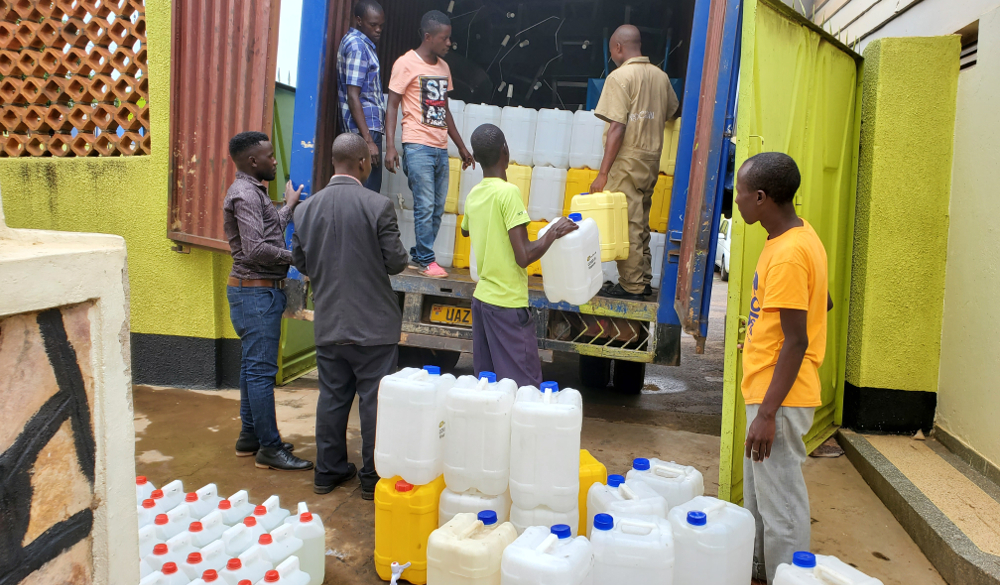
FCA loads up disinfectants to be delivered to schools in northern Uganda.
Nepal
The Covid-19 pandemic has caused many in Nepal to lose their livelihood. FCA responds to the crisis together with its partner organisations by delivering food and soap to 2,400 families.
The packages containing rice, lentils, oil, salt, sugar, and soap are handed out in the districts of Dadeldhura, Kailali, and Sindhuli. The response pays particular attention to pregnant and breastfeeding women, who are provided with additional protein-rich foods such as eggs and soy.
Myanmar
Because of the Covid-19 pandemic, many garment factories in Myanmar are closed, which particularly impacts the livelihood of women. The demand for face masks is high as the government of Myanmar has encouraged the use of face masks at camps for internally displaced people. The cramped conditions of the camps make it easy for the virus to spread.
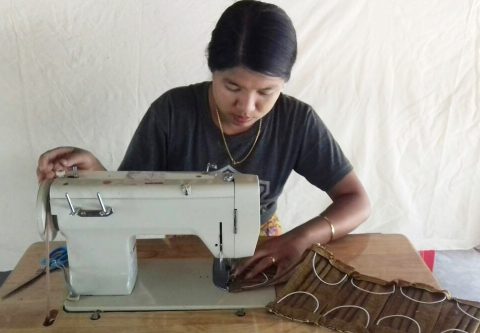
So far, the women’s groups have made and sold 600 face masks.
An FCA supported project in Rakhine State has trained women as craft workers. Now, the project is responding to the new situation by training the participants to produce face masks, which also gives people a responsible form of livelihood.
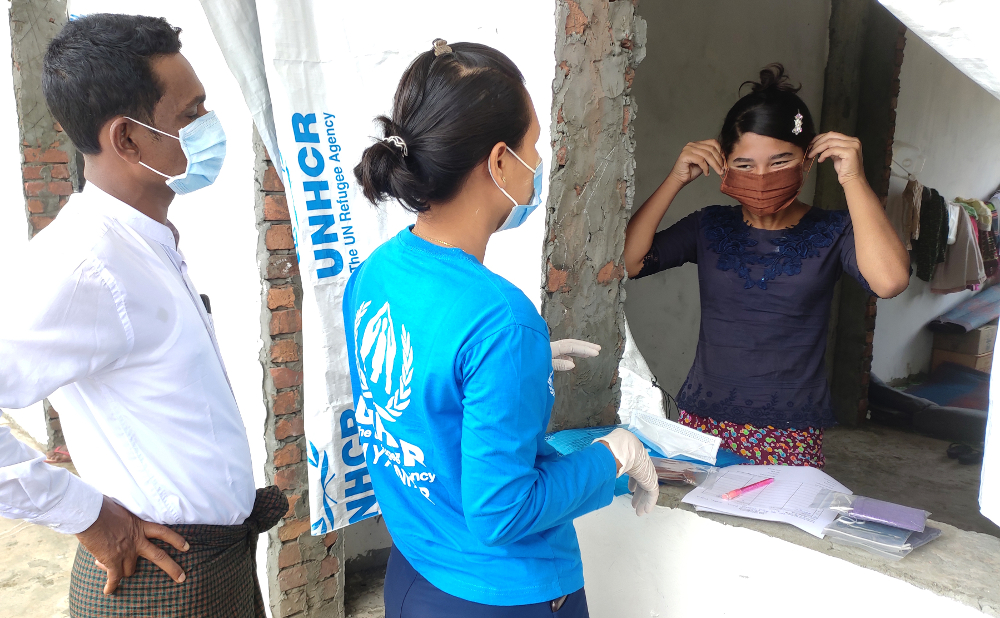
UN organisations have bought face masks made by women’s groups in Myanmar.
Jordan
Finn Church Aid’s country office in Jordan managed to turn the corona situation into a new opportunity in its Women’s Bank project by moving the meetings of the women’s groups online. The meetings of the women’s savings and loan groups are held on the Zoom platform.
Online meetings were also appropriate during Ramadan when the women prefer to participate in their activities after sundown, once they are allowed to eat and drink again. Organising activities during Ramadan is usually a challenge because fasting takes its toll on the women.
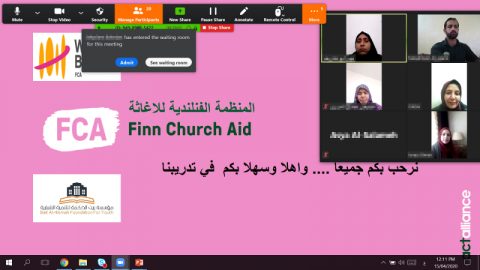
A group of female entrepreneurs meeting via Zoom in Jordan.
Kenya
FCA raises awareness on the coronavirus and ways to protect people from infection and supports distance learning via radio at the Kalobeyei refugee settlement, currently home to nearly 200,000 people.
Information on matters such as the importance of handwashing is shared in local languages via radio, SMS, posters and information sessions. Handwashing stations have been set up in the refugee settlements, and inhabitants have been provided with hygiene supplies such as soap and hand sanitiser.
FCA has handed out 500 solar-powered radios to learners in the area, enabling them to follow lectures. When no internet connection is available, radio is the most efficient way to carry out distance teaching.
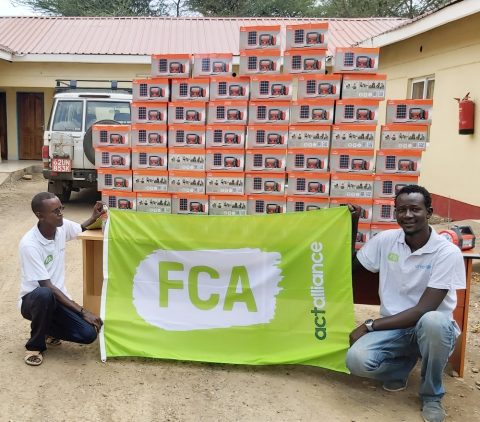
FCA transports solar-powered radios to Kalobeyei refugee settlement in Kenya.
Somalia
In Somalia, FCA disseminates information on how to curb the spread of the coronavirus in Baidoa. The town hosts the second largest number of internally displaced people in the country, and FCA supports six schools in the area.
Schools are closed in Somalia, but with the help of school committees and teachers, FCA can reach about 3,200 pupils and their families. Experienced community workers assist with putting up posters in the school surroundings and carrying out information campaigns that guide people on matters such as hand hygiene. Families are provided with soap.
Once schools reopen in Somalia, FCA will continue its educational work by training teachers and pupils, setting up school hygiene clubs, and campaigning for a safe return to school.
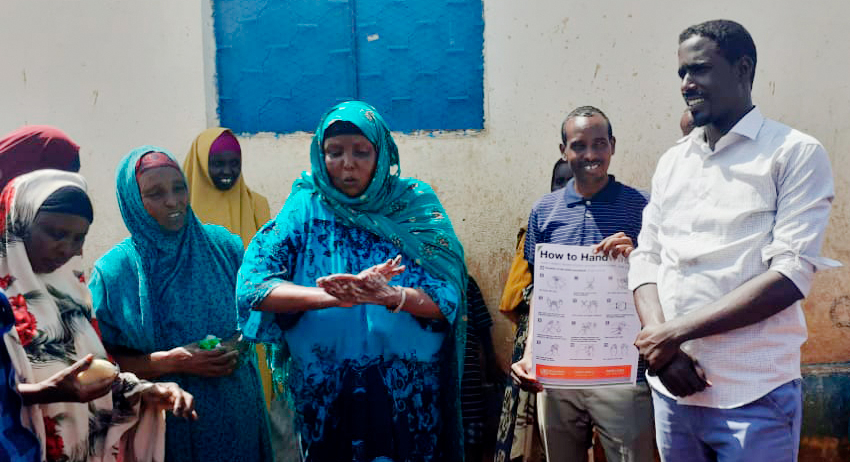
Handwashing in Baidoa in Somalia.
Translation: Leena Vuolteenaho